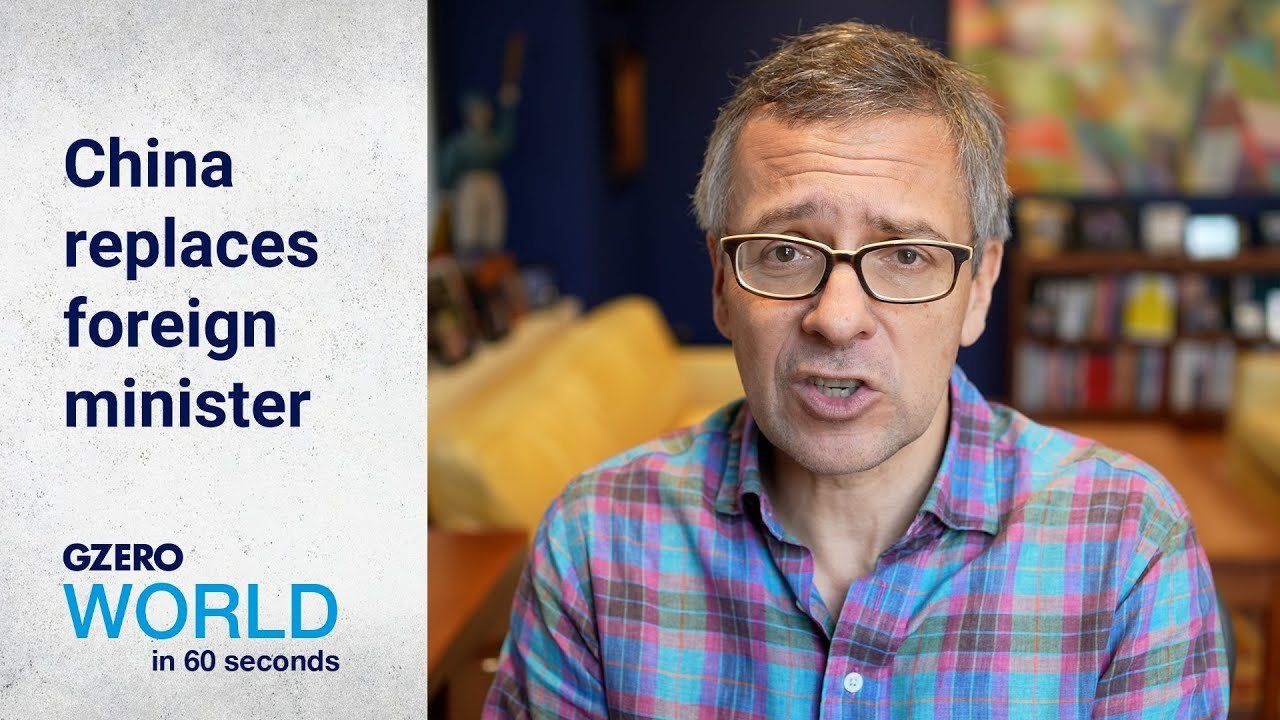Is democracy dead in Israel? Will a fugitive decide Spain's next prime minister? What does Qin Gang's removal say about China? Ian Bremmer shares his insights on global politics this week on World In :60.
Is democracy dead in Israel?
No, not at all. It's very much alive. It's precisely the fact there has been such an extraordinary outcry among so many Israeli citizens and completely peaceful, mind you, over so many months because they're not happy with the efforts to reform, and by reform, I mean, undermine Israel's independent judiciary. The first piece of that that has passed in the last 24 hours is by itself certainly not a death knell for democracy, though it probably would allow Netanyahu to appoint cabinet members that could allow him to no longer face jeopardy from these corruption cases that have been against him. If they persist with the next couple of pieces of legislation that would allow the Knesset, the legislature, to overturn with a simple majority, a judicial decision, that would be a much more significant threat to democracy. We'll see how that plays out over the fall, but certainly this is going to impact the economy, society, and the rest.
Will a fugitive decide Spain's next prime minister?
No, what's happened is that Prime Minister Sanchez recognized that by calling early elections, he could make everybody worry about the far-right Vox party and that if they went down in the polls, there was a shot for him to stay on his PM. That has played out pretty well. The center-right in Spain has done much better, but they don't have enough votes to create a parliament because they don't have a majority and that's because Vox has fallen apart. They're talking about like, anti-woke politics at a time when everyone wants to talk about the economy and people increasingly worried about climate change. So, Vox got destroyed. What's probably going to happen is, can't get a majority and so you'll have to have yet another election. We'll play this out again in the fall.
Finally, what does Qin Gang's removal say about China?
This is the former, now former foreign minister, pretty clear he was going to be out. We haven't heard from him at all in four weeks. China said he was ill for a couple days then didn't. There've been all these rumors and scandals around him. And the reason I thought he was out is because Chinese state media was not trying to repress all of the social commentary about those rumors at any point in the last couple weeks. And given that he was a Xi Jinping direct appointee and skyrocketed and how fast he was able to get the appointment, it was pretty clear there were serious problems. But I don't think this changes foreign policy in China, one whit. I was talking to the US ambassador to the UN the other day, has been dealing with the Chinese ambassador all the way through and she's like, "Nah, he's still been engaging with me as he normally does," so it's bad news for him, but no change for Chinese policy.
- Israel’s divisive judicial reforms becoming law ›
- Netanyahu faces national unrest after judicial reform vote ›
- Who will govern Spain? ›
- Ahead of the Spanish election, the political pendulum is swinging right ›
- Hard Numbers: Britain seeks bricklayers, Pentagon loses secrets to a typo, Cameroon separatists attack, where has Qin Gang gone? ›
- Where is China's foreign minister? ›
More For You
Most Popular
In this "ask ian," Ian Bremmer analyzes Trump’s recent meeting with Zelensky and how close (or far) Russia and Ukraine are from a peace deal.
Syrian President Ahmed al-Sharaa attends the military parade of the Syrian army in Umayyad Square in central Damascus to mark the one-year anniversary of the fall of the Assad regime, on Dec. 8, 2025.
A year ago this month, Syria’s brutal dictatorship collapsed. There are signs of recovery, but sectarian violence threatens to undermine the optimism.
